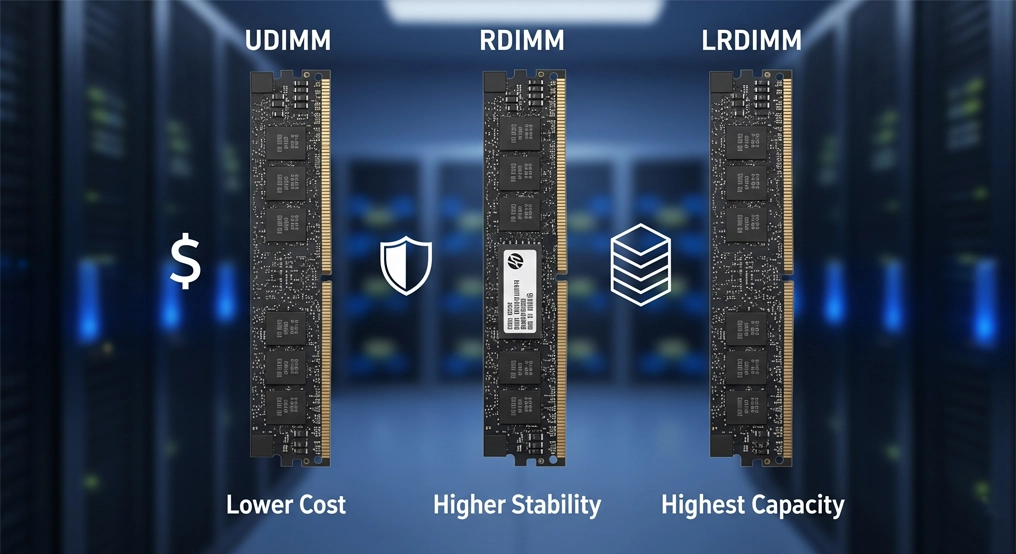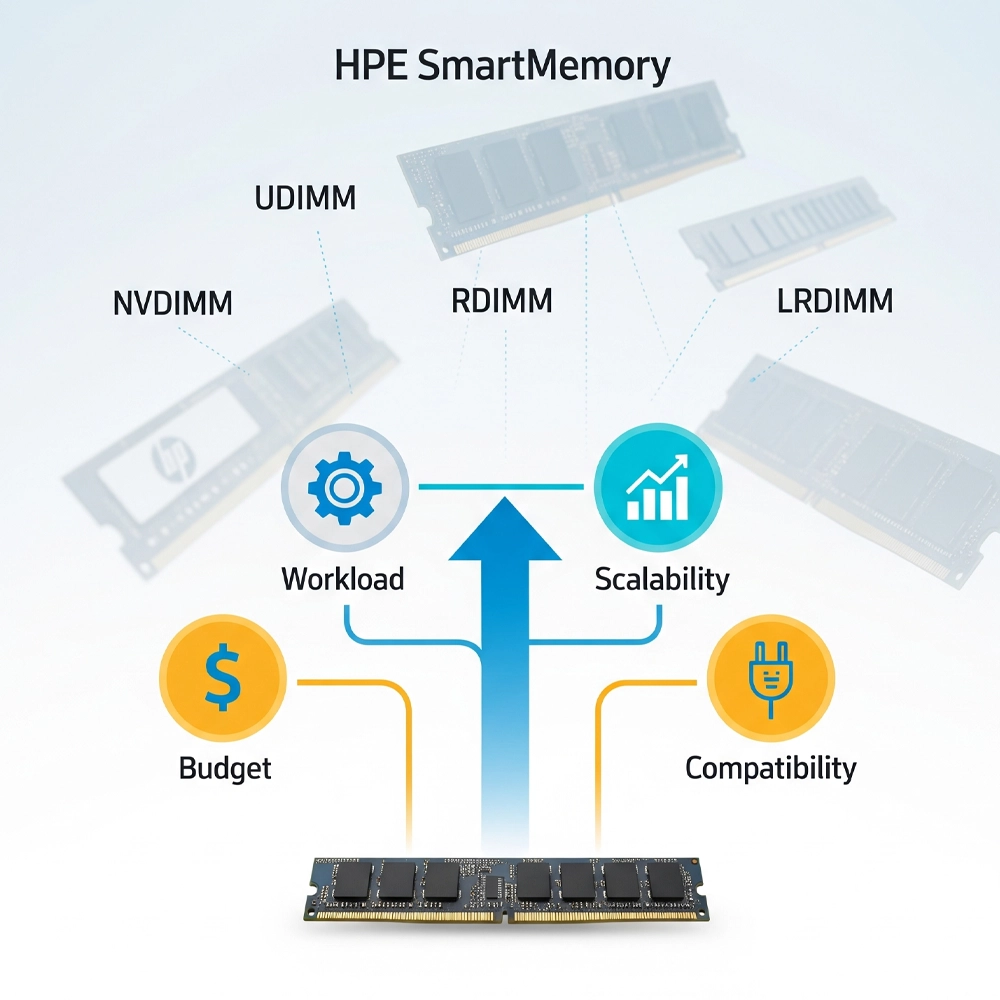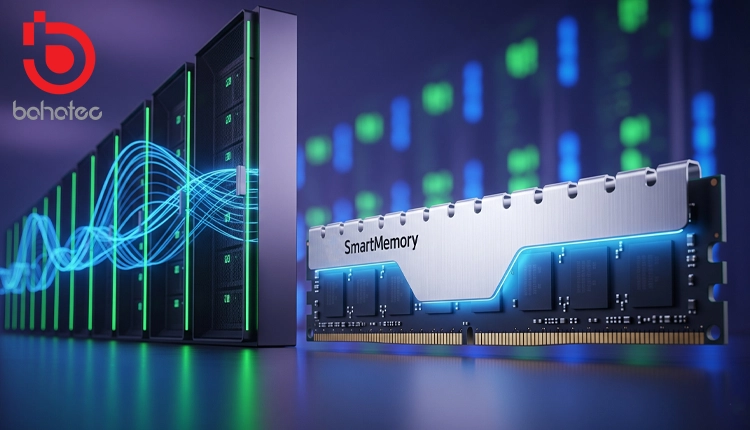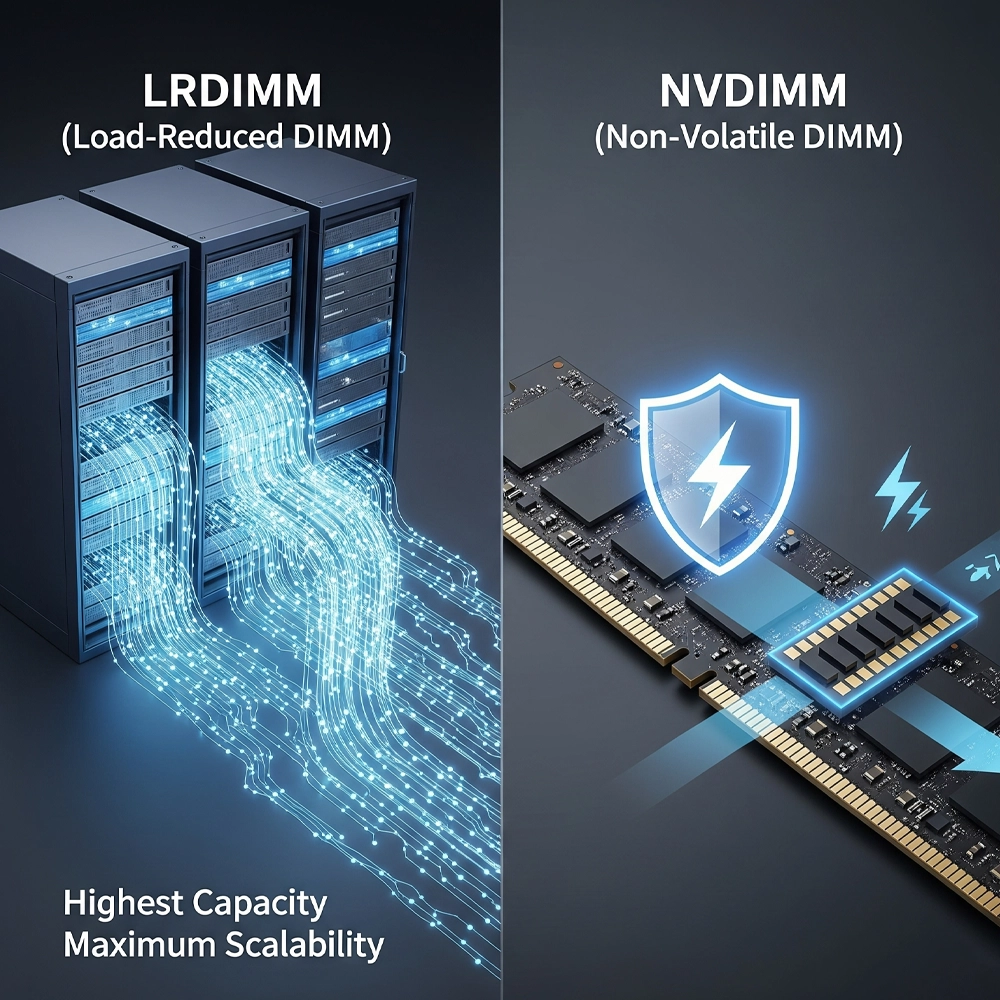A comprehensive guide to HPE server RAM, its types and importance
In the fast-paced world of data centers and enterprise computing, server performance is paramount. At the heart of every powerful server lies its Random Access Memory (RAM), a critical component that directly impacts processing speed, application responsiveness, and overall system efficiency. For businesses relying on HPE servers, understanding the nuances of server RAM—especially HPE SmartMemory—is crucial for making informed decisions that ensure optimal performance, stability, and data integrity.
This comprehensive guide will delve into the concept of server RAM, explore the various types of HPE server memory, compare their features and benefits, discuss their applications and compatibility, and highlight why choosing the right memory is an investment in your infrastructure’s future.
What is Server RAM? Beyond the Basics
Server RAM, unlike desktop RAM, is specifically designed for the demanding, continuous operation of enterprise environments. It’s built for higher reliability, greater density, and often incorporates error-correcting capabilities. In a server, RAM acts as a temporary, high-speed storage area where the CPU keeps data and instructions it needs to access quickly. The more RAM a server has, and the faster that RAM operates, the more tasks it can handle simultaneously without slowdowns, leading to better performance for applications, virtualization, and databases.
The HPE SmartMemory Advantage: Why Original Matters
HPE SmartMemory is not just any RAM; it’s a meticulously engineered solution designed and tested to meet the exact specifications of HPE servers. This integrated approach ensures seamless compatibility, maximum performance, and unparalleled reliability. HPE SmartMemory undergoes rigorous testing and qualification processes, guaranteeing that it operates optimally with HPE’s processors, controllers, and firmware. This results in:
- Guaranteed Performance: Optimized for HPE ProLiant servers, ensuring peak speeds and efficiency.
- Enhanced Reliability: Built-in error detection and correction capabilities (ECC) prevent data corruption.
- Full Compatibility: Seamless integration with HPE’s management tools like iLO.
- Warranty Protection: Maintains your server’s warranty, safeguarding your investment.

Types of HPE Server RAM: A Detailed Comparison
HPE offers several types of server RAM, each tailored to specific needs and server generations. Understanding these types is key to selecting the right memory for your environment.
-
UDIMM (Unbuffered DIMM)
- Concept: UDIMMs are the simplest form of DIMM, where the memory controller directly accesses the DRAM chips. This means there’s no buffer (or register) chip between the memory controller and the DRAM modules.
- Advantages:
- Lower Latency: Direct communication with the memory controller results in slightly lower latency.
- Lower Cost: Generally less expensive than RDIMMs or LRDIMMs.
- Lower Power Consumption (per module): Due to fewer components.
- Applications: Typically found in entry-level servers, workstations, and some blade servers where lower memory capacity is acceptable, and cost-efficiency is a priority. They are suitable for less memory-intensive applications.
- Compatibility: Supported by many HPE ProLiant Gen8/Gen9/Gen10 servers, but usually with fewer DIMMs per channel to maintain stability.
- Capacity: Limited to smaller capacities per module and per server compared to RDIMMs/LRDIMMs.
-
RDIMM (Registered DIMM)
- Concept: RDIMMs include a register chip that buffers the control signals (address, command, and clock) between the memory controller and the DRAM chips. This buffer helps to stabilize the signals when more memory modules are connected.
- Advantages:
- Higher Stability: The buffer reduces electrical load on the memory controller, allowing for more modules per channel and greater overall memory capacity.
- Greater Capacity: Supports significantly higher memory capacities than UDIMMs.
- Error Correction (ECC): Standard in server environments, providing enhanced data integrity.
- Applications: The most common type of server memory, suitable for a vast range of enterprise applications including virtualization, databases, business applications, and cloud computing, where high capacity and stability are crucial.
- Compatibility: Widely supported across almost all HPE ProLiant server generations (Gen8, Gen9, Gen10, Gen11).
- Capacity: Offers a balance of cost, performance, and capacity, making it a versatile choice.
-
LRDIMM (Load-Reduced DIMM)
- Concept: LRDIMMs take the buffering concept a step further than RDIMMs. They buffer all electrical loads, including data signals, not just control signals. This significantly reduces the electrical load on the memory controller.
-
- Advantages:
- Highest Capacity: Allows for the maximum possible memory capacity per server, as the memory controller sees only a single electrical load per channel, regardless of the number of ranks on the LRDIMM.
- Maximum Scalability: Ideal for servers requiring massive amounts of RAM.
- Enhanced Reliability: Even greater stability in high-density configurations.
- Applications: Critical for very memory-intensive workloads such as large-scale virtualization, in-memory databases (like SAP HANA), big data analytics, and high-performance computing (HPC).
- Compatibility: Typically supported by newer HPE ProLiant server generations (Gen8 onwards, with increasing prevalence in Gen9, Gen10, Gen11), especially those designed for high memory density.
- Capacity: Offers the highest per-module and per-server capacities, albeit at a higher cost.
- Advantages:
-
NVDIMM (Non-Volatile DIMM)
- Concept: NVDIMMs are a relatively newer technology that combines traditional DRAM (for speed) with NAND flash memory (for persistence). In the event of a power failure, data from the DRAM is automatically backed up to the non-volatile NAND flash.
- Advantages:
- Data Persistence: Data is retained even if power is lost, which is critical for preventing data loss in memory-intensive applications.
- High Performance: Operates at DRAM speeds during normal operation.
- Enhanced Reliability: Offers an additional layer of data protection.
- Applications: Ideal for applications where data loss is unacceptable and rapid recovery is essential, such as transactional databases, financial trading platforms, and data logging.
- Compatibility: Supported by specific, often newer, HPE ProLiant server models (Gen9, Gen10, and later) that have been engineered for NVDIMM technology. Requires specific BIOS and operating system support.
- Capacity: Currently offered in specific capacities, focusing on performance and persistence rather than raw capacity for general-purpose use.
Choosing the Right HPE Memory: Key Considerations
When selecting RAM for your HPE server, several factors must be considered:

- Server Model and Generation: Always check the HPE QuickSpecs for your specific server model. This document will list the supported memory types, speeds, and maximum capacities.
- Workload Requirements:
- Light workloads/cost-sensitive: UDIMM (if supported by your server).
- General-purpose enterprise/virtualization/databases: RDIMM.
- High-density memory/in-memory databases/big data: LRDIMM.
- Critical data persistence/transactional workloads: NVDIMM.
- Budget: While UDIMMs are generally the cheapest, LRDIMMs and NVDIMMs command a higher price due to their advanced features and capabilities.
- Scalability Needs: Plan for future growth. If you anticipate needing more memory, ensure your chosen memory type supports sufficient scalability.
- Warranty: Using HPE SmartMemory ensures your server warranty remains valid.
Why Purchase Your HPE Server RAM from Bahatec in Dubai?
Choosing the right memory is an investment, and choosing the right partner to supply it is equally important. At Bahatec in Dubai, we are your trusted source for genuine HPE server components. We understand the critical role server RAM plays in your infrastructure, and we are committed to providing:
- Genuine HPE SmartMemory: We supply only authentic HPE SmartMemory, ensuring optimal compatibility, performance, and reliability for your servers.
- Expert Consultation: Our team of experienced professionals can help you identify the precise memory type and configuration required for your specific HPE server model and workload.
- Competitive Pricing: Benefit from our competitive pricing on all HPE memory modules, ensuring you get the best value for your investment.
- Reliable Supply Chain: Located in Dubai, a strategic global hub, Bahatec ensures a smooth and efficient supply chain, delivering your components promptly and securely.
- Customer-Centric Service: We pride ourselves on exceptional customer service, offering comprehensive support from inquiry to post-purchase assistance.
Don’t compromise on the performance and reliability of your HPE servers with non-qualified memory. Invest in the best.
Contact Bahatec today to discuss your HPE server memory requirements and let our experts guide you to the perfect solution. Elevate your server performance with genuine HPE SmartMemory!



